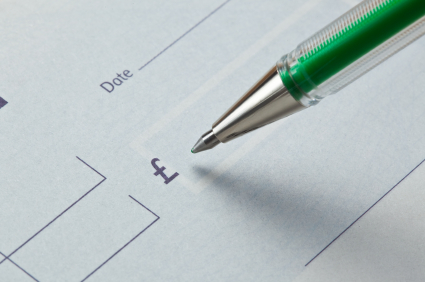Credit Cards

The credit card is a financial innovation that has afforded us ease and convenience in the purchasing experience. However, irresponsible spending can quickly turn that convenience into a curse.
What is a credit card?
 A credit card is a plastic card that allows the cardholder to purchase goods or services on credit, based on the issuer’s promise to pay for the purchase. The issuer is normally a bank, but other financial entities also issue their own credit cards. Unlike charge cards, credit cards allow you to keep a continuing balance of debt that is subject to an agreed-upon interest rate.
A credit card is a plastic card that allows the cardholder to purchase goods or services on credit, based on the issuer’s promise to pay for the purchase. The issuer is normally a bank, but other financial entities also issue their own credit cards. Unlike charge cards, credit cards allow you to keep a continuing balance of debt that is subject to an agreed-upon interest rate.
Why should I use a credit card?
-
Convenience
Credit cards have many advantages, but most of them revolve around the convenience they afford us. They allow you to make purchases on the fly without the worry or hassle of carrying loads of cash. They also allow you to make purchases over the internet seamlessly, sidestepping the troubles of waiting for traditional financing, such as checks, money orders, or wire transfers.
-
Security
Another major benefit is security. Unlike paying by cash and other traditional payment methods, credit cards allow you a large degree of recourse if you are defrauded. They also provide more security in the event of theft. Once your cash is gone, it’s gone, but with a credit card you can simply call your credit card company and cancel the card. They will almost always reimburse you in the event of any unauthorised charges.
How do I repay my credit card?
How you repay your credit card will vary depending on the credit company you use and the type of card you have. However, most credit cards will have the same fundamental repayment policies.
Unlike a debit card, when you use a credit card you are essentially borrowing money. Ordinarily, whenever you borrow money, you are subject to an interest rate. Credit cards work much the same, but most cards come with an interest-free period. As long as you make the minimum monthly payment that appears on your credit card statement within the interest-free period, you should not be subject to any interest.
Though, if you fail to make the minimum payment, your credit card company will start charging you interest. While the interest rate varies, the typical amount you will be subject to is approximately 18%.
Common credit card questions
What does the APR on a credit card mean?
Personal APR
This is the actual APR that you will be charged on the credit card that you take out. This often differs considerably from the Representative APR you will see while shopping around for a credit card.
Representative APR
You often see this displayed on the product pages for most financial service providers. Since your personal APR is determined by your credit score and other variables, the company has to display an APR so that you can gauge a baseline for the cost of their product. Under current EU law, the representative APR that is displayed must be a minimum of 51% of the APR accepted customers will pay.
What type of credit card is best for me?
How will my credit score affect my credit card?
What is a balance transfer?
Why did I receive a higher credit limit than I applied for?
The state of credit card debt in the UK
 According to Credit Action, the nation’s total credit card debt was £55.3 billion in April 2018. This debt was created through a total number of credit and charge cards that outnumbered the UK population. Approximately two-thirds of those cards bore interest, which averaged 17.46% — 16.96% above the Bank of England base rate.
According to Credit Action, the nation’s total credit card debt was £55.3 billion in April 2018. This debt was created through a total number of credit and charge cards that outnumbered the UK population. Approximately two-thirds of those cards bore interest, which averaged 17.46% — 16.96% above the Bank of England base rate.
The large amount of credit card debt has resulted in the proliferation of debt management services, some of which are ‘for-profit,’ and may place their profits ahead of their clients’ best interests.
Discussed below are the numerous debt management options available to consumers who want to reduce their credit card debt.
Writing off credit card debt
Many consumers receive cold-calls on behalf of organisations that claim to use a legal loophole in the Consumer Credit Act of 1974 to write off the entirety of their credit card debt. While it is true that the act contains certain provisions which allow a consumer’s debt to become ‘unenforceable,’ this does not mean that the debt is written off. Unenforceable debt simply means that the creditors cannot make the debtor pay back the outstanding balance, get a court judgment against the debtor, or take back anything used as security in the agreement, while the debt remains unenforceable.
How does debt become unenforceable?
Debt can become unenforceable in two ways:
- If there is an error in your credit agreement, the debt becomes unenforceable until the error is rectified.
- Debtors are entitled by law to information about their credit agreements. The debt becomes unenforceable if the information is not provided within 12 working days.
Once either of the two situations are remedied by the creditor, the debt becomes enforceable again, and you will still owe all outstanding money to the creditor.
What can the creditor do while the debt is unenforceable?
Creditors are still legally allowed to perform the following actions to recover your debt:
- Contact debtors to request payment of the full outstanding balance.
- Send a default notice.
- Pass information to a credit reference agency.
- Pass information to a debt collector.
- Sell the debt to another entity.
- Take the case to court.
Credit card debt consolidation
Types of credit card consolidation
Credit card debt consolidation allows you to combine multiple pre-existing debts into one larger debt. There are numerous ways to consolidate credit card debt, but two of the most common are:
- You can take out a personal loan to pay off all of your credit card balances.
- If you have taken out multiple credit cards and have debt on each one, many credit card providers will allow you to transfer the total outstanding balance to one new card.
Transfer of credit card balances
If you opt for the transfer of credit card balances, these providers often offer special deals on balance transfers, such as lower introductory interest rates. While these offers may seem attractive, you must keep the following in mind:
- Many offers are only available for a limited time so you have to read the terms and conditions to make sure that the attractive rates will remain when the offer expires.
- Some credit card companies will remove the lower interest rates if you ever default on a payment so make sure you carefully review your new credit card agreement.
- Make sure that there are no additional fees or hidden penalties that could make consolidation more expensive than your current debt repayment schedule.
While debt consolidation may seem like a useful tool for reducing your credit card debt, it is only a short-term solution. Even though your debt is being consolidated at a cheaper rate, you are still in debt and should continue to exercise fiscal restraint.
Other ways to manage credit card debt
 The best way to manage your credit card debt is to make sure you are diligent in your repayments. Missing payments will only make your debt problems worse due to the nature of compounded interest. You should make certain that you make the minimum monthly payment so that interest is never added to your account. Sometimes, the ‘minimum’ monthly payment on your credit card bill will not be sufficient to avoid additional interest being accrued.
The best way to manage your credit card debt is to make sure you are diligent in your repayments. Missing payments will only make your debt problems worse due to the nature of compounded interest. You should make certain that you make the minimum monthly payment so that interest is never added to your account. Sometimes, the ‘minimum’ monthly payment on your credit card bill will not be sufficient to avoid additional interest being accrued.
Ultimately, your best bet is to stop using your credit cards. Paying by cash or check will allow you to avoid increasing your outstanding balance, and allow to make smaller payments that reach the threshold to not accrue additional interest.
